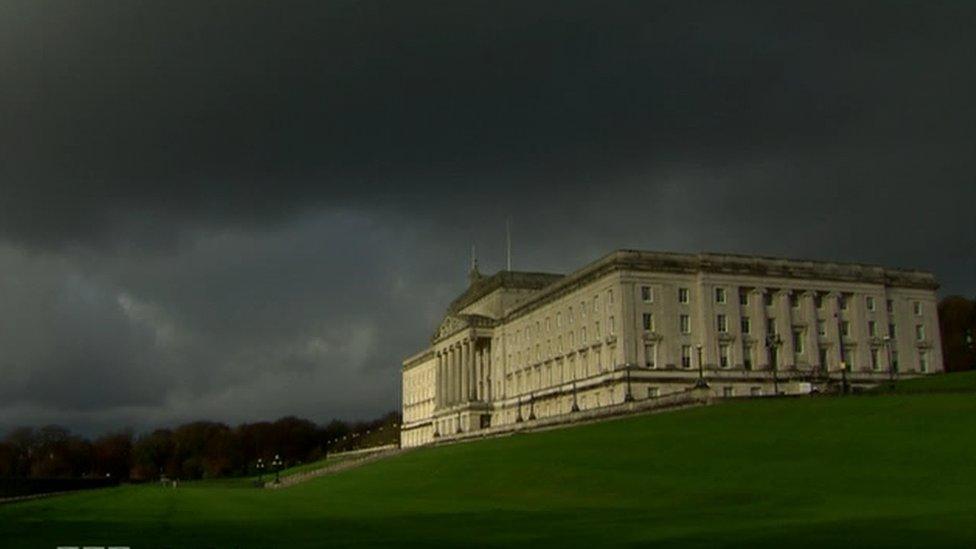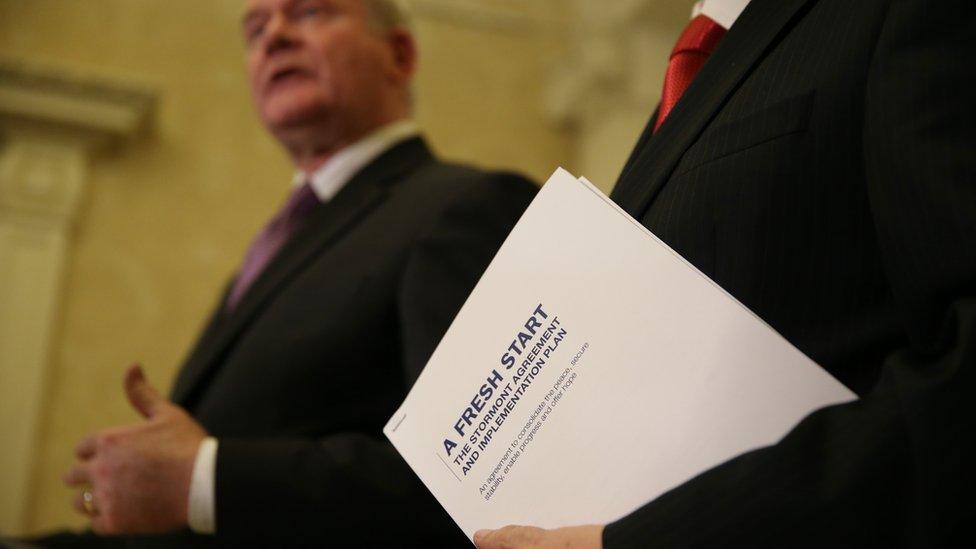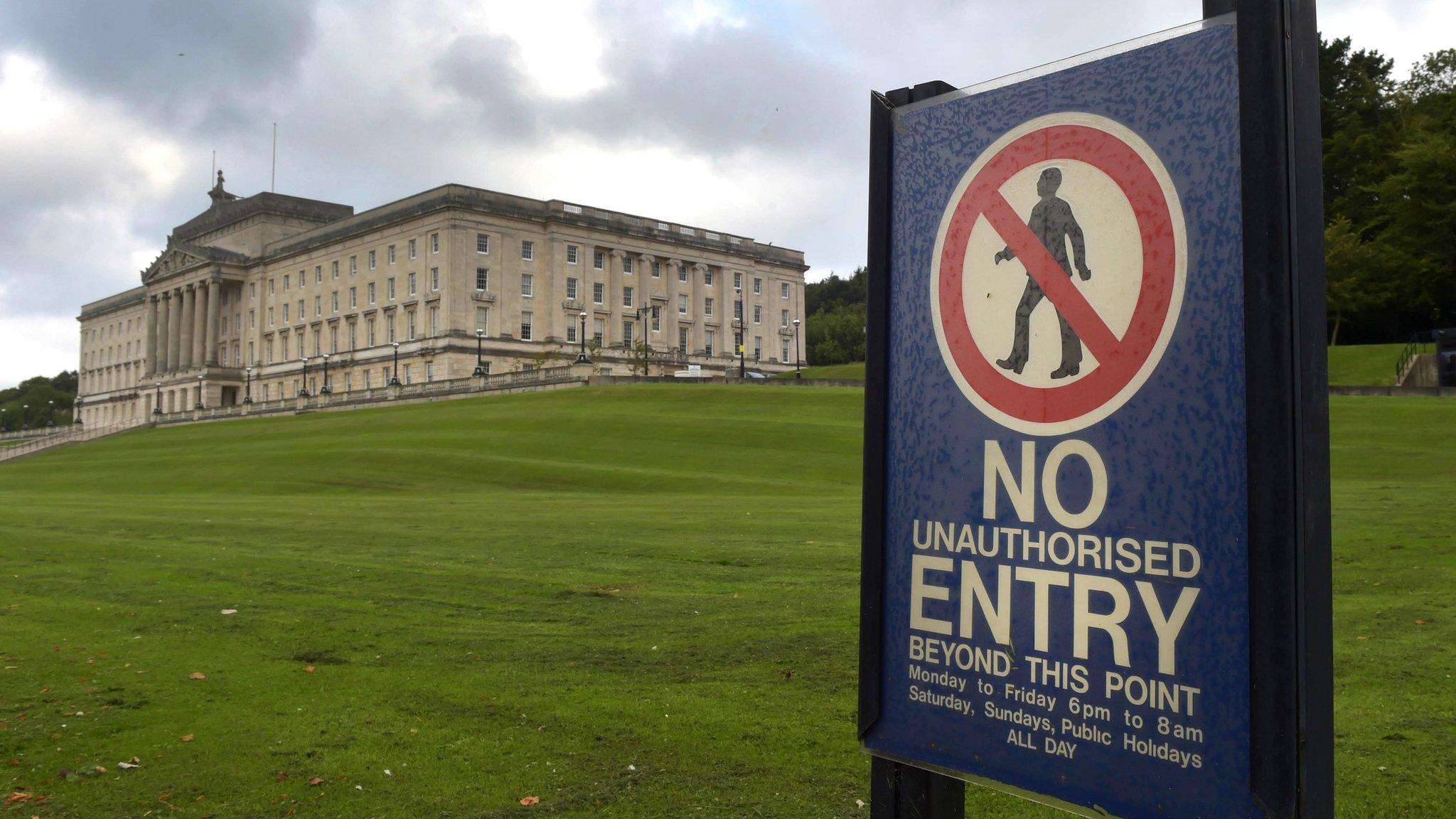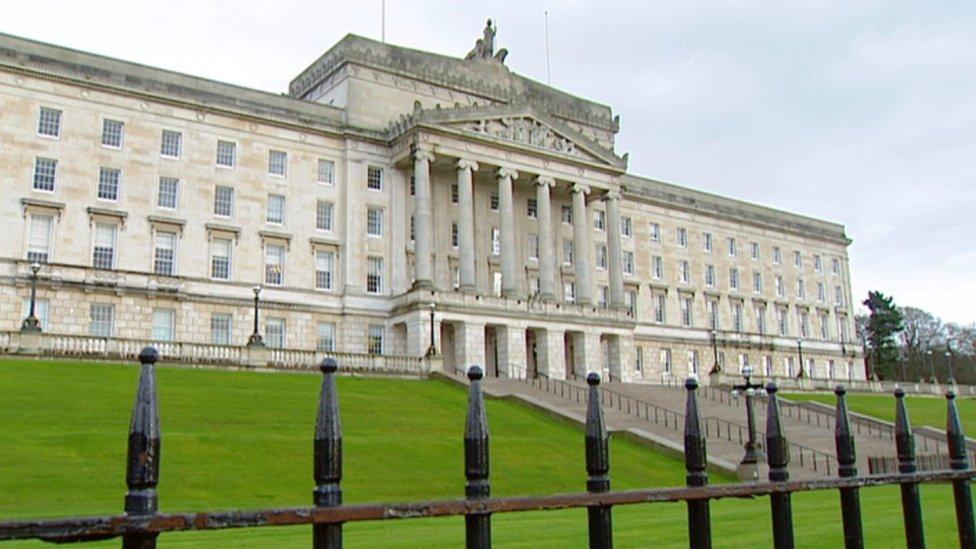MLAs vote to allow Westminster to implement NI welfare reform
- Published
There were pointed exchanges during the debate at Stormont
The Northern Ireland Assembly has voted in favour of a motion to allow MPs at Westminster to implement changes to the welfare system in Northern Ireland.
The motion was passed with 70 votes in favour and 22 votes against it.
It followed a new political agreement, external struck on Tuesday between Stomont's two largest parties, the Democratic Unionist Party (DUP) and Sinn Féin.
However, other parties criticised the motion and voted against handing welfare powers back to Westminster.
'Grotesque abdication'
The impasse over proposed changes to the benefits system was among a number of issues that had threatened the future of devolution in recent months.
The special sitting of the assembly was called on Wednesday to debate a draft NI Welfare Reform Bill, external and MLAs spent the afternoon discussing what is known as a legislative consent motion.
The DUP, Sinn Féin and the Alliance Party voted in support of allowing Westminster to intervene and legislate for welfare reform in Northern Ireland.
The Ulster Unionist (UUP) and the Social Democratic and Labour Party (SDLP) voted against the motion.
SDLP MLA Alex Attwood described the move as a both a "slap in the face for our democracy" and a "grotesque abdication of political responsibility".
'Sticking plaster'
He accused the DUP and Sinn Féin of handing the "hard won authority" of Northern Ireland's Assembly over "lock, stock and barrel to Westminster".
Alliance MLA Stewart Dickson said his party reluctantly supported the motion but it would have preferred to delay the vote on the issue.
He said Tuesday's deal between the DUP and Sinn Féin was a "sticking plaster solution" which other parties had not been privy to until late in the process.

Analysis - BBC NI political correspondent Gareth Gordon
The plan to ask Westminster to do what Stormont failed to do and pass a Welfare Reform Bill for Northern Ireland is controversial.
The Ulster Unionist leader Mike Nesbitt said he was also opposed to the move and the SDLP's Alex Attwood told the DUP and Sinn Féin they should be ashamed for using Stormont as a "post-box".
However, Social Development Minister Mervyn Storey - the DUP minister who proposed the motion - said they could not afford to waste any more time.
Sinn Féin argued that the alternative was to allow devolution to fail and risk direct rule from London.

Earlier, Traditional Unionist Voice (TUV) leader Jim Allister interrupted the debate to suggest it be delayed until next week to give MLAs more time to consider it.
The proposed delay was also backed by UUP leader Mike Nesbitt, who asked if the height of MLAs' ambition was to give legislative power away to Westminster.

A fresh start: the new deal to resolve the latest political crisis
Social Development Minister Mervyn Storey said if they did not proceed on Wednesday there could be a four-week delay that could jeopardise the passage of the bill through Parliament.
The TUV's motion to delay the debate was defeated and the vote proceeded as planned.


In the run up to Tuesday's agreement, smaller parties had complained that they were left out of many of the negotiations between the DUP and Sinn Féin.
The document, entitled 'A Fresh Start', was agreed by the two largest parties after 10 weeks of talks.
A way forward was agreed on paramilitarism and welfare reform.
However, the parties failed to break the impasse over legacy issues arising from Northern Ireland's Troubles.
Earlier, Sinn Féin's Conor Murphy denied his party had gone back on its commitments on the issue of welfare reform.
"We had to deal with a much, much bigger problem, with a very limited fund to do that," he said.
"We have secured more money over a shorter timeframe and targeted that at the most needy."
- Published18 November 2015

- Published18 November 2015

- Published17 November 2015

- Published17 November 2015

- Published13 November 2015

- Published17 November 2015
